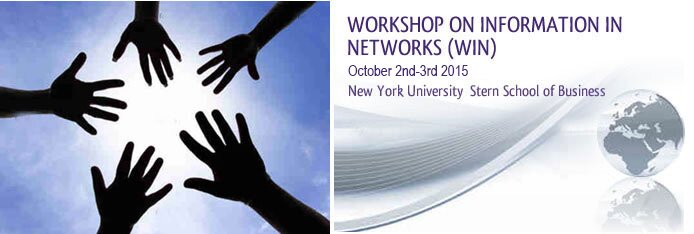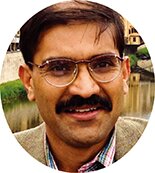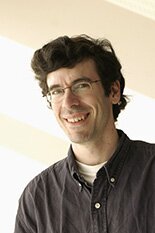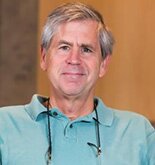 |
| |
| Plenary Speakers |
Ashton Anderson, Microsoft Research
 http://cs.stanford.edu/people/ashton/ http://cs.stanford.edu/people/ashton/
Ashton Anderson is a postdoctoral researcher at Microsoft Research NYC. His research is driven by a desire to better understand the increasingly digital social systems that shape our society. He studies a wide array of computational social science problems ranging from mapping the structure of how information and products spread through social networks to investigating how to use badges to incentivize people online. Prior to joining Microsoft Research, he received his Master's and PhD in Computer Science from Stanford University, where he was supported by a Google PhD Fellowship in Social Computing. In Fall 2017, he will join the Department of Computer Science at the University of Toronto as an assistant professor. |
Lars Backstrom, Facebook
 http://www.cs.cornell.edu/~lars/ http://www.cs.cornell.edu/~lars/
Lars Backstrom graduated from Cornell as an undergrad in 2004 and with a PhD in 2009. He joined Facebook in the fall of 2009. At Facebook, he first worked on the people you may know system, trying to find people who users are friends with but not yet connected to on Facebook. This combined machine learning with network science, as Facebook worked to use the graph structure to sort of find missing edges and connect them. Since late 2010, Lars has been working on News Feed, trying to understand the social graph to find people's closest friends and connect everyone with their friends and family by showing the most relevant content produced by those people in News Feed. |
Tina Eliassi-Rad, Rutgers University
 http://eliassi.org/ http://eliassi.org/
Tina Eliassi-Rad is an Associate Professor of Computer Science at Rutgers University. Before joining academia, she was a Member of Technical Staff at Lawrence Livermore National Laboratory. Tina earned her Ph.D. in Computer Sciences (with a minor in Mathematical Statistics) at the University of Wisconsin-Madison. Her current research lays at the intersection of machine learning, data mining, network science, and computational social science. Within data mining and machine learning, Tina's research has been applied to the World-Wide Web, text corpora, large-scale scientific simulation data, complex networks, fraud detection, and cyber situational awareness. She has published over 60 peer-reviewed papers (including a best paper runner-up award at ICDM'09 and a best interdisciplinary paper award at CIKM'12); and has given over 100 invited presentations. Tina is an action editor for the Data Mining and Knowledge Discovery Journal; an associate editor for the IEEE Transactions on Knowledge and Data Engineering, and a member of the editorial board for the Springer Encyclopedia of Machine Learning and Data Mining. In 2010, she received an Outstanding Mentor Award from the US DOE Office of Science. |
Bruno Goncalves, NYU Center for Data Science
 http://www.bgoncalves.com/ http://www.bgoncalves.com/
Bruno Gonçalves is currently a Moore Sloan fellow at New York University’s Center for Data Science, on leave from a tenured faculty position at Aix-Marseille Université. He has a strong expertise in using large-scale datasets for the analysis of human behavior. After completing his joint PhD in Physics, MSc in C.S. at Emory University in Atlanta, GA in 2008 he joined the Center for Complex Networks and Systems Research at Indiana University as a Research Associate. From September 2011 until August 2012 he was an Associate Research Scientist at the Laboratory for the Modeling of Biological and Technical Systems at Northeastern University, following which he joined the rank of Aix-Marseille Université as a "Mâitre de Conferences". Since 2008 he has been pursuing the use of Data Science and Machine Learning to study human behavior. By processing and analyzing large datasets from Twitter, Wikipedia, web access logs, and Yahoo! Meme he studied how we can observe both large scale and individual human behavior in an obtrusive and widespread manner. The main applications have been to the study of Computational Linguistics, Information Diffusion, Behavioral Change and Epidemic Spreading. He is the author of over 50 publications with over 3000 Google Scholar citations and an h-index of 25. He is also the editor of the forthcoming book Social Phenomena: From Data Analysis To Models (Springer, 2015). |
Sanjeev Goyal, University of Cambridge
 http://www.econ.cam.ac.uk/faculty/goyal/ http://www.econ.cam.ac.uk/faculty/goyal/
Sanjeev Goyal is Professor of Economics at the University of Cambridge and Fellow of Christ's College, Cambridge. He is a pioneer and leading international scholar in the study of social and economic networks. In 2007, Princeton University Press published his book Connections: an introduction to the economics of networks. A Chinese translation was published by Beijing University Press in 2010. He was the founding Director of the Cambridge-INET Institute and is a Fellow of the British Academy. |
Nicole Immorlica, Microsoft Research
 http://www.immorlica.com/ http://www.immorlica.com/
Nicole's research lies broadly within the field of algorithmic game theory. Using tools and modeling concepts from both theoretical computer science and economics, Nicole hopes to explain, predict, and shape behavioral patterns in various online and offline systems, markets, and games. Her areas of specialty include social networks and mechanism design. Nicole received her Ph.D. from MIT in Cambridge, MA in 2005 and then completed three years of postdocs at both Microsoft Research in Redmond, WA and CWI in Amsterdam, Netherlands before accepting a job as an assistant professor at Northwestern University in Chicago, IL in 2008. She joined the Microsoft Research New England Lab in 2012. She has been awarded the Microsoft Faculty Fellowship, the Sloan Fellowship, and the NSF CAREER Award, and serves as an associate editor of the journal Transactions on Economics and Computation. |
Matthew O. Jackson, Stanford University
 http://web.stanford.edu/~jacksonm/ http://web.stanford.edu/~jacksonm/
Matthew O. Jackson is the William D. Eberle Professor of Economics at Stanford University, an external faculty member of the Santa Fe Institute, and a fellow of CIFAR. He is a Member of the National Academy of Sciences, a Fellow of the American Academy of Arts and Sciences, a Fellow of the Econometric Society, and an Economic Theory Fellow. Jackson's research interests include game theory, microeconomic theory, and the study of social and economic networks, on which he has published many articles and the book Social and Economic Networks. He has written on the strategic formation of networks, homophily, learning and diffusion in social networks, games on networks, informal risk-sharing, alliance and trade networks, financial contagions, and the statistical modeling of networks. Jackson also teaches an online course on networks and co-teaches two others on game theory. |
Michael Kearns, University of Pennsylvania
 http://www.cis.upenn.edu/~mkearns/ http://www.cis.upenn.edu/~mkearns/
Since 2002, Michael Kearns has been a professor in the Computer and Information Science Department at the University of Pennsylvania, where he holds the National Center Chair. He has secondary appointments in the department of Economics, and in the departments of Statistics and Operations, Information and Decisions (OID) in the Wharton School. He is the Founding Director of the Warren Center for Network and Data Sciences, where his Co-Director is Rakesh Vohra. Michael is the Founding Co-Director of Penn Engineering's Networked and Social Systems Engineering (NETS) Program, whose Director is Zack Ives. Michael is a faculty affiliate in Penn's Applied Math and Computational Science graduate program. Until July 2006, he was the co-director of Penn's interdisciplinary Institute for Research in Cognitive Science. With Yuriy Nevmyvaka, Michael runs a quantitative trading team at Engineers Gate, a hedge fund based in New York City. Michael often serves as an advisor to technology companies and venture capital firms. He is also involved in the seed-stage fund Founder Collective and occasionally invests in early-stage technology startups. He is a member of the Technical Advisory Board of Microsoft Research Cambridge. He occasionally serves as an expert witness or consultant on technology-related legal and regulatory cases. He is a Fellow of the American Academy of Arts and Sciences, the Association for Computing Machinery, the Association for the Advancement of Artificial Intelligence, and the Society for the Advancement of Economic Theory. |
Jon Kleinberg, Cornell University
 http://www.cs.cornell.edu/home/kleinber/ http://www.cs.cornell.edu/home/kleinber/
Jon Kleinberg is the Tisch University Professor in the Departments of Computer Science and Information Science at Cornell University. His research focuses on issues at the interface of networks and information, with an emphasis on the social and information networks that underpin the Web and other on-line media. He is a member of the National Academy of Sciences, the National Academy of Engineering, and the American Academy of Arts and Sciences, and has served on the Computer Science and Telecommunications Board (CSTB) of the National Research Council and the Computer and Information Science and Engineering (CISE) Advisory Committee of the National Science Foundation. He is the recipient of research fellowships from the MacArthur, Packard, Sloan, and Simons Foundations, and awards including the Harvey Prize, the Lanchester Prize, the Nevanlinna Prize, the Newell Award, the SIGKDD Innovation Award, and the ACM-Infosys Foundation Award in the Computing Sciences. |
David Lazer, Northeastern University
 http://davidlazer.com/ http://davidlazer.com/
David Lazer is Distinguished Professor of Political Science and Computer Science at Northeastern University. He is one of the leading figures in computational social science. Educated in political science at the University of Michigan, he began his career at the Harvard Kennedy School. He subsequently accepted a position at Northeastern to establish the Lazer Lab on computational social science. His research focuses on the nexus of network science, computational social science, and collaborative intelligence. He is the founder of the citizen science website Volunteer Science and the political visualization website VisPolics. His research has been published in such journals as Science, Proceedings of the National Academy of Science, the American Political Science Review, Organization Science, and the Administrative Science Quarterly, and has received extensive coverage in the media, including the New York Times, NPR, the Washington Post, the Wall Street Journal, and CBS Evening News. |
Jure Leskovec, Stanford University
 http://cs.stanford.edu/~jure http://cs.stanford.edu/~jure
Jure Leskovec is assistant professor of Computer Science at Stanford University. His research focuses on mining large social and information networks. Problems he investigates are motivated by large scale data, the Web and on-line media. This research has won several awards including a Microsoft Research Faculty Fellowship, the Alfred P. Sloan Fellowship and numerous best paper awards. Leskovec received his bachelor's degree in computer science from University of Ljubljana, Slovenia, and his PhD in in machine learning from the Carnegie Mellon University and postdoctoral training at Cornell University. You can follow him on Twitter @jure . |
Natalia Levina, NYU Stern School of Business
 http://www.stern.nyu.edu/faculty/bio/natalia-levina http://www.stern.nyu.edu/faculty/bio/natalia-levina
Natalia Levina has received her PhD in Information Technology from MIT’s Sloan School of Management and is an Associate Professor at New York University Stern School of Business. Her main research interest is in understanding how people span organizational, professional, cultural and other boundaries in order to generating innovative ideas and products. Currently, her studies focus on open innovation, crowdsourcing, and global sourcing of expertise, content, and ideas. Specifically, she has made significant contributions to the understanding of the vendor capability building in professional services, multivendor portfolio strategies, knowledge sharing and collaboration effectiveness for distributed innovation, and strategies for open innovation. Prof. Levina is an innovative teacher who has developed a unique course on “Globalization, Open Innovation, and Crowdsourcing: New Way of Organizing Work,” which has been receiving stellar evaluations in MBA and Executive MBA programs. She is a frequent speaker on these topics in academic and industry conferences. Her research has been published in top journals such as ISR, MIS Quarterly, Organization Science, Journal of Management Information Systems, Academy of Management Journal, Decision Sciences Journal, among others. She received two dissertation awards from ICIS and the Academy of Management conferences and multiple conference best paper awards. Prof. Levina serves as a Senior Editor at Information Systems Research and is on the editorial board of Information & Organizations. Prof. Levina was awarded numerous research grants including Alfred P. Sloan Foundation Industry Studies Fellowship, IBM Shared University Research Award, and National Science Foundation VOSS Research Grant. |
Michael Macy, Cornell University
 http://infosci.cornell.edu/faculty/michael-macy http://infosci.cornell.edu/faculty/michael-macy
Michael Macy is Director of the Social Dynamics Laboratory at Cornell and Goldwin Smith Professor of Arts and Sciences, with dual appointments in the Departments of Sociology and Information Science. With support from the US National Science Foundation, the Korean National Science Foundation, the Department of Defense, and Google, his research team has used computational models, online laboratory experiments, and digital traces of device-mediated interaction to explore familiar but enigmatic social patterns, such as circadian rhythms, the emergence and collapse of fads, the spread of self-destructive behaviors, cooperation in social dilemmas, the critical mass in collective action, the spread of high-threshold contagions on small-world networks, the polarization of opinion, segregation of neighborhoods, and assimilation of minority cultures. Recent research uses 509 million Twitter messages to track diurnal and seasonal mood changes in 54 countries, and telephone logs for 12B calls in the UK to measure the economic correlates of network structure. His research has been published in leading journals, including Science, PNAS, PloS One, American Journal of Sociology, American Sociological Review, and Annual Review of Sociology. |
Jennifer Neville, Purdue University
 https://www.cs.purdue.edu/homes/neville/ https://www.cs.purdue.edu/homes/neville/
Jennifer Neville is the Miller Family Chair Associate Professor of Computer Science and Statistics at Purdue University. She received her PhD from the University of Massachusetts Amherst in 2006. In 2012, she was awarded an NSF Career Award, in 2008 she was chosen by IEEE as one of "AI's 10 to watch", and in 2007 was selected as a member of the DARPA Computer Science Study Group. Her research focuses on developing data mining and machine learning techniques for relational domains, which include social, information, and physical networks. |
Asu Ozdaglar, MIT
 https://asu.mit.edu/ https://asu.mit.edu/
Since completing her graduate studies at MIT in 2003, Asu Ozdaglar has been a faculty member in the Electrical Engineering and Computer Science Department at MIT. She is affiliated with LIDS and the Operations Research Center. Her research focuses on problems that arise in the analysis and optimization of large-scale dynamic multi-agent networked systems including communication networks, transportation networks, and social and economic networks. |
Johan Ugander, Stanford University
 http://web.stanford.edu/~jugander/ http://web.stanford.edu/~jugander/
Johan Ugander is an Assistant Professor of Management Science & Engineering at Stanford University. His research develops algorithmic and statistical frameworks for analyzing social networks, social systems, and other large-scale social data. Prior to joining Stanford he was a post-doctoral researcher at Microsoft Research, Redmond from 2014-2015, held an affiliation with the Facebook Data Science team from 2010-2014, and obtained his Ph.D. in Applied Mathematics from Cornell University in 2014. |
Duncan Watts, Microsoft Research
 http://everythingisobvious.com/ http://everythingisobvious.com/
Duncan Watts is a principal researcher at Microsoft Research and a founding member of the MSR-NYC lab. He is also an AD White Professor at Large at Cornell University. Prior to joining MSR in 2012, he was from 2000-2007 a professor of Sociology at Columbia University, and then a principal research scientist at Yahoo! Research, where he directed the Human Social Dynamics group. His research on social networks and collective dynamics has appeared in a wide range of journals, from Nature, Science, and Physical Review Letters to the American Journal of Sociology and Harvard Business Review, and has been recognized by the 2009 German Physical Society Young Scientist Award for Socio and Econophysics, the 2013 Lagrange-CRT Foundation Prize for Complexity Science, and the 2014 Everett Rogers Prize. He is also the author of three books: Six Degrees: The Science of a Connected Age (W.W. Norton, 2003); Small Worlds: The Dynamics of Networks between Order and Randomness (Princeton University Press, 1999); and most recently Everything is Obvious: Once You Know The Answer (Crown Business, 2011). He holds a B.Sc. in Physics from the Australian Defence Force Academy, from which he also received his officer’s commission in the Royal Australian Navy, and a Ph.D. in Theoretical and Applied Mechanics from Cornell University. |
| |
|
|
 Key Dates Key Dates
Workshop Dates:
October 2nd-3rd, 2015
Abstract Submission Deadline:
August 21st, 2015
Notification to Authors:
August 31st, 2015
Final Abstract Submission for Publication in Workshop Notes:
September 23rd, 2015
Early Registration Deadline:
September 21st, 2015
Onsite Registration(Space Permitting):
October 2nd, 2015 |
|